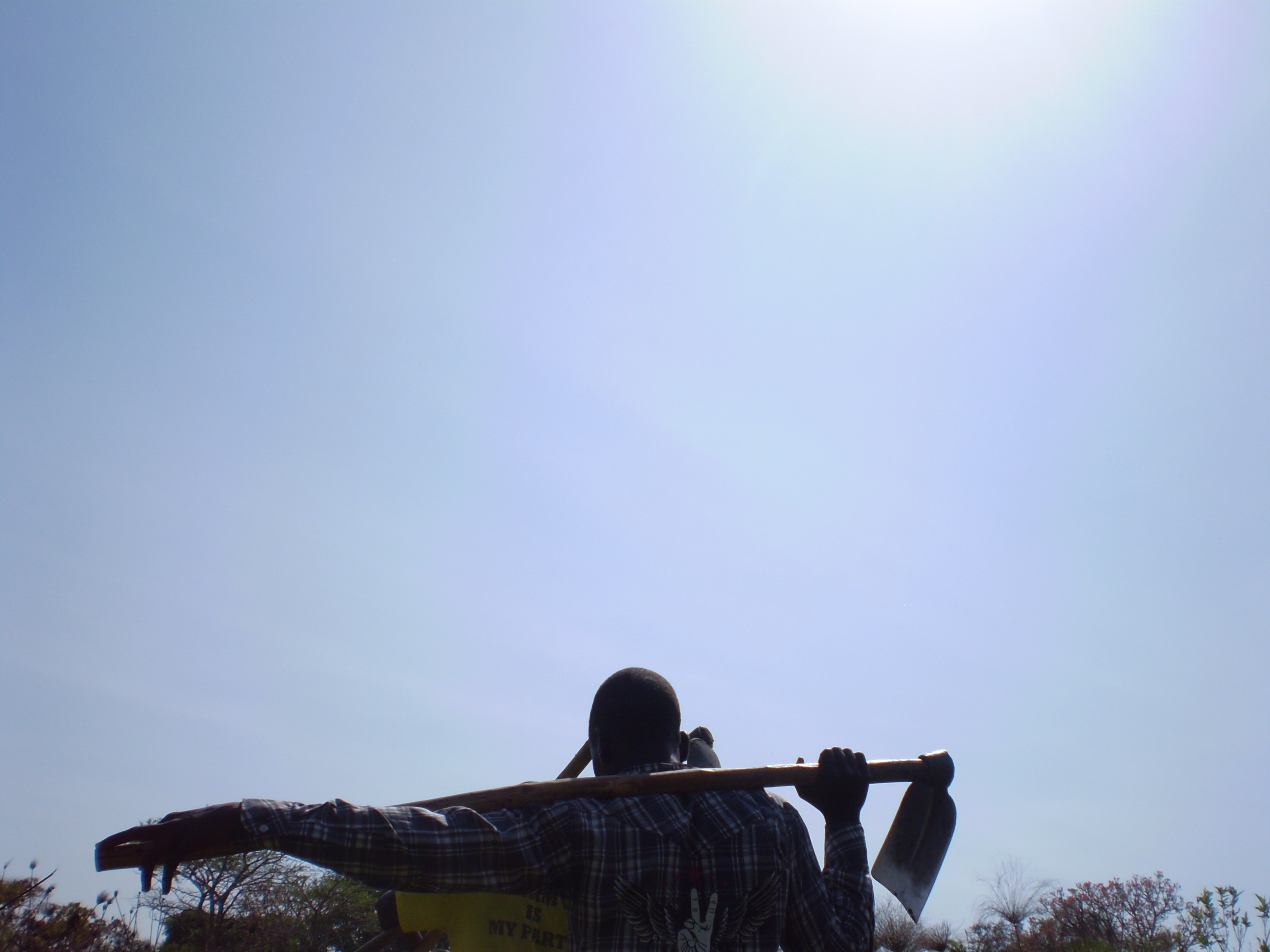
We firmly believe that living in harmony with the environment will help the health and well-being of children who have suffered the trauma of war. Whilst at war they have been taught to cause devastation and destruction; we believe that working closely with agricultural development will help them to restore and revitalise the environment.
The healing benefits of trees and plants are well researched in Africa and we hope to draw from this learning for ex-child soldiers in order for them to understand the provision of healing that is all around them. In this way their environment will bring healing to them whilst they are learning to heal their environment.
Preparing the site
We have begun preparing a site where these things can be learnt and practised. There is plenty of sun in Uganda, however water can be a challenge! The north of Uganda has a long dry season, which can last up to five months. The air is fiercely hot; the ground is bone dry. The first trees we planted, five years ago, all died during the dry season!
The next year we planted more hardy timber trees, pine, eucalyptus and teak – they survived. We then experimented with fruit trees, which we carefully nursed through the dry season. Last year, encouraged by their growth, we planted over one thousand fruit, nut and medicinal trees. With income raised by selling produce grown on the land, we bought two foot pumps to enable a comprehensive watering system throughout the dry season. Having observed which fruits grow best on the land, this year we hope to plant a further five hundred trees, ensuring we have ample fruit for the project and extra produce to take to market.
Training courses and the Living Acre scheme
Post war malnutrition is still a significant problem in the region. Though the conflict has ended and people are returning to their land, they are tending to plant and eat the same famine crops they became used to in the camps. By breaking the word ‘malnutrition’ down into ‘mal’ (bad) and ‘nutrition’, we conducted a series of seminars on healthy-eating, looking together at the kinds of fruits and vegetables the community could grow to improve their health.
As people return to their land, they are keen to learn how to improve its yield. Often they follow Western farming methods, clearing an area in which to grow a single crop, such as maize, potatoes or cassava. This system, however, soon degrades the land for the soil becomes over-exposed to the sun, bleaching it of its nutrients. The heavy rains then wash away the fragile topsoil, leaving the ground hard and infertile. Farmers require expensive fertilisers to replenish the land yet the yield remains low and the poverty cycle continues.
We are trying to redress this problem by layering crops, so that trees provide shade for bushes which in turn provide shade for ground crops and the soil is vibrant and well-fed by the nutrients from the greater diversity of plants. It would appear this is a far more effective method of farming in the tropics and we hope that by modelling this method we can assist ex-child soldiers and local farmers to get better productivity from their land.
As a team we have produced a comprehensive course on agriculture, to go through with the ex-child soldiers we will be working with over the year ahead. We are also beginning a Living Acre scheme, where we are exploring what fruit, vegetables, crops and simple medicines can be grown on one acre. If this experiment works well, we will look at raising funds to secure an acre for each child soldier we work with who does not have access to land.
Swales: water harvesting ditches
We have looked at solar powered irrigation systems in the past but have been held back by the costs, knowing that this is not something ex-child soldiers could ever afford. We were excited, therefore, to learn about ‘swales’: water harvesting ditches that catch excess rain water and allow it to slowly seep into the soil over time. This simple method only requires a spade and sweat!
Given the way the project is developing, we are deeply hopeful about the role agriculture can play in the recovery of ex-child soldiers. On this front I was encouraged to read an article recently about an ex-child soldier from Sierra Leone who won an environmental award for the re-forestation of the country’s national parks. Surely to plant a seed, water it to growth and see it flourish as a tree, is to participate in a process of restoration that redresses the damage of war.
